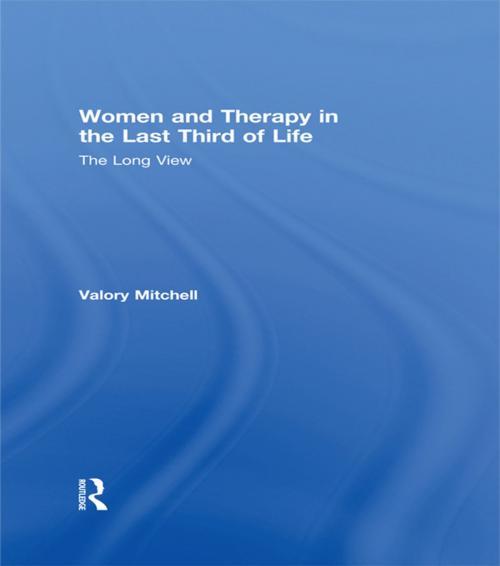Women and Therapy in the Last Third of Life
The Long View
Nonfiction, Family & Relationships, Aging, Eldercare, Health & Well Being, Health, Women&| Author: | ISBN: | 9781317987291 | |
| Publisher: | Taylor and Francis | Publication: | September 13, 2013 |
| Imprint: | Routledge | Language: | English |
| Author: | |
| ISBN: | 9781317987291 |
| Publisher: | Taylor and Francis |
| Publication: | September 13, 2013 |
| Imprint: | Routledge |
| Language: | English |
What is distinct about the last third of life, about women, that makes psychotherapy different? In this diverse collection, the psychological meanings and challenges of the last third of life are explored, as the capacity of the psyche expands, sense of time changes, and some questions take on new vibrance and urgency. Some chapters shine their light on women therapy clients - on their precarious sociocultural predicament in a sexist/ageist time and place, on intrapsychic changes that follow from changing bodies, relationships, involvements and emergent needs of the self. Other chapters enter the largely unexplored territory of changes in the therapy process itself - where some decide against therapy altogether, while others describe a rich revision of familiar elements of therapy, greater authentic presence, a changed standpoint on the power of the therapeutic relationship.
Standing inside the ‘‘last third’’ and looking back on their own lives, several women psychotherapists offer a rare window into their private experience across time and their perspectives on the challenges and the gifts that they, and other women, may realize in the last third of their lives as they consider who they have become, who they are, and who they can be.
This book was based on a special issue of Women and Therapy.
What is distinct about the last third of life, about women, that makes psychotherapy different? In this diverse collection, the psychological meanings and challenges of the last third of life are explored, as the capacity of the psyche expands, sense of time changes, and some questions take on new vibrance and urgency. Some chapters shine their light on women therapy clients - on their precarious sociocultural predicament in a sexist/ageist time and place, on intrapsychic changes that follow from changing bodies, relationships, involvements and emergent needs of the self. Other chapters enter the largely unexplored territory of changes in the therapy process itself - where some decide against therapy altogether, while others describe a rich revision of familiar elements of therapy, greater authentic presence, a changed standpoint on the power of the therapeutic relationship.
Standing inside the ‘‘last third’’ and looking back on their own lives, several women psychotherapists offer a rare window into their private experience across time and their perspectives on the challenges and the gifts that they, and other women, may realize in the last third of their lives as they consider who they have become, who they are, and who they can be.
This book was based on a special issue of Women and Therapy.















